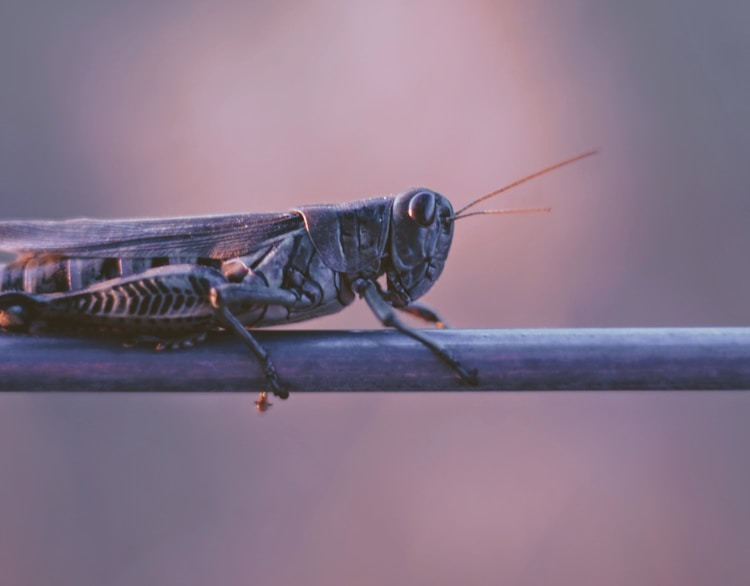The best way to eliminate pests is to use a combination of methods. If possible, find out what the pest’s natural predators are and try to introduce them into your home. Use carbon dioxide, electronic devices, and other pest control devices that produce a non-lethal shock or vibration. Try not to use toxic pesticides and make sure you properly label them. Here are 7 Tips: How to Eliminate Pesky Pests for Good!
What are the Pests?
The pests that plague homeowners are numerous and varied. Termites, cockroaches, spiders, ants, rodents, and bats are some of the most common. Many people have a fear of spiders, but they play an important role in the environment by controlling the populations of other pests. Ants are also beneficial in their own way by aerating the soil and pollinating plants.
However, when they invade homes in large numbers, they can become a nuisance. Rodents can cause extensive damage to buildings and contaminate food supplies with their droppings. Bats can carry rabies and other diseases, so it is important to take precautions if they are discovered in your home.
7 Tips: How to Eliminate Pesky Pests?
There are many pests that can invade your home and cause damage or simply be a nuisance. Here are seven tips to help you get rid of them:
1. Make Sure Your Home Is Clean
Maintaining a clean home is one of the best ways to prevent pesky pests from invading your space. Insects and rodents are naturally drawn to areas that are cluttered and dirty, so by keeping your home tidy, you can make it less inviting to these unwanted guests. Be sure to sweep and mop regularly, keep all surfaces clean, and take out the trash frequently.
If you do notice an infestation, be sure to address it quickly before it gets out of hand. There are a number of different methods for getting rid of pests, so talk to a professional about the best option for your situation. Keeping your home clean is not only good for your health, but it can also help protect you from costly pest invasions.
2. Seal up Your Home’s Cracks and Crevices
There are many ways to seal up your home’s cracks and crevices in order to eliminate pesky pests. One way is to use caulk. You can find caulk at any hardware store. It is a very inexpensive way to seal up your home and it is also very easy to do. All you need is a caulking gun and a tube of caulk.
Another way to seal up your home’s cracks and crevices is by using expanding foam insulation. This can be found at most hardware stores, as well. It is a little more expensive than caulk, but it does a better job of filling in the cracks and crevices. If you have large gaps that need to be filled, then expanding foam insulation would be the best option.
3. Use A PEST CONTROL BARRIER
There are many ways to get rid of pests, but one of the most effective is to use a pest control barrier. By using a barrier, you can stop pests from getting into your home or office in the first place. This is a great way to eliminate pests without using any chemicals or pesticides. There are many different types of barriers that you can use. One of the most common is a physical barrier, such as a fence or wall.
You can also use a chemical barrier, such as a pesticide or herbicide. Finally, you can use an electronic barrier, such as an ultrasonic repelled. Which type of barrier you choose will depend on the type of pests you are trying to get rid of. For example, if you are trying to get rid of cockroaches, you would want to use a chemical barrier.
4. Use Natural Methods to Repel Pests
There are many ways to repel pests without using harsh chemicals. One way is to use plants that naturally repel pests. Another way is to make your own natural pest repellent. One of the best plants to use for pest control is mint. Mint not only smells great, but it also repels ants, mosquitoes, and spiders. Another great plant for pest control is lavender. Lavender not only smells great but also repels fleas and moths.
You can also make your own natural pest repellent by mixing essential oils with water in a spray bottle. Some of the best essential oils to use for pest control are peppermint oil, lemongrass oil, and citronella oil. These essential oils not only smell great, but they also work well at repelling pests.
5. Trap Pests Using DIY Methods
There are many pests that can invade your home and garden, but there are also ways to trap and repel those using DIY methods. One way to trap pests is to use homemade bait. For example, you could mix sugar and water together and put them in a bowl to attract ants. Once the ants have been lured into the bowl, you can place some hot pepper sauce or vinegar in the bowl to kill them.
Another way to trap pests is to use a homemade trap made from a soda bottle. Cut off the bottom of the bottle and turn it upside down so that the mouth of the bottle is now at the top. Make small holes in the sides of the bottle near the top. Pour some bait (like sugar water) into the bottle and wait for the pests to climb in through the holes.
6. Use Pesticides Safely and Sparingly
Insecticides, herbicides, and other pesticides are designed to kill or repel pests. When used improperly, these chemicals can also harm people, pets, and the environment. Follow these tips to use pesticides safely and sparingly:
- Read the label carefully. The label tells you how to use the pesticide safely and effectively.
- Only use as much as you need. Excessive use can be wasteful and harmful to the environment.
- Avoid contact with skin and eyes. Wear gloves and goggles when handling pesticides.
- Keep children and pets away from treated areas until the pesticide has dried.
- Store pesticides in a cool, dry place away from children and pets.
7. Use a Bug Zapper Regularly
Summertime is the season for outdoor activities, picnics, and BBQs. But with all of that outdoor fun also comes pesky pests. Insects like mosquitoes, flies, and ticks can ruin a good time. One way to help keep these pests away is to use a bug zapper regularly. Bug zappers work by emitting an electronic pulse that kills bugs on contact.
They are a great way to get rid of mosquitoes, which can carry diseases like the West Nile virus and other flying insects. Bug zappers can be used inside or outside the home and are relatively affordable. Ticks are also a common summer pest. Ticks can transmit diseases like Lyme disease, so it’s important to take steps to protect you from them. One way to do that is to use a tick repellent.
Conclusion
In conclusion, following these seven tips of Dallas TX pest control can help homeowners get rid of pests for good. However, it is important to keep in mind that some pests may be harder to eliminate than others, and in some cases, professional help may be necessary. If you are experiencing a pest infestation, be sure to take action right away to avoid further damage and discomfort.










